
siamesekitty
-
Posts
975 -
Joined
-
Last visited
Content Type
Profiles
Forums
Downloads
Posts posted by siamesekitty
-
-
it's not used in everyday informal conversation, nor in formal conversation, for that matter. As far as I know it's just a quaint little way of saying "good morning", especially when you have just woken up.

I say it quite often just for fun, to break away from the usual "waddee kha". Actually throws people off sometimes (esp. if they're not used to my quirky ways)
-
Cheers, withnail
that was the one that I was after = lor.
Although the second example is given as ror when I checked and has a different meaning.
True it's not really supposed to be spelled that way but it might be online e.g. จิงหรอ = จริงหรือ
or even worse, "จิงหลอ" !
However, you won't find these in the dictionary (I think-too lazy to go check), because หรอ and หลอ are not real words, like "dis", "dat", "sez", "sum". (this, that, says, some)
-
หนำเลียบ can be used to make either the ข้าวผัดหนำเลี้ยบ (khaopahd namliab), which is the fried rice, or หมูัผัดหนำเลี้ยบ (moo pahd namliab), which is pork stir-fried with namliab.
The fried rice (pics & recipe - in Thai):
The stir-fry (pics & recipe - in Thai):
You could find Namliap at Big C or any Chinese grocery. Comes in two can sizes which is colored red or somewhat dark orange - can't recall exactly now. I use it as a topping for pizza.Is this what you're talking about?
-
pretty good translation, though I agree with the various points others have made. I admire the smoothness of some parts of the translation, but it loses major points for the mistranslation about the dogs. For me, style is flexible, but inaccuracy is a no-no.
As for the เค้า/มัน issue, I believe มัน has always been the proper word for any animal, but nowadays เค้า is often used, especially on TV and amongst "cultured" people, because เค้า sounds more polite. Kinda like the political correctness in Farangland, where people now tend to say ____-person rather than ___-man.
-
for most of the cases that come to mind (mostly informal situations), we omit the pronoun.
eg. cooking class instructor: ต้องใส่น้ำปลา 2 ช้อนชา... ([you] have to put in 2 teaspoons of fish sauce)
also, notice in some of the translations I've posted here in the past, in Thai->English translations I'll have something translated as [you/me/he/she]. That's because in the original Thai content there was no pronoun, leaving the meaning open for interpretation based upon the situation.
-
Please have a look at a previous thread: What to Say to People Who Interrupt
-
Ok, the whole thing (using my own transliteration):
(0:24) สถานีต่อไป สถานีสามย่าน.
(Sah-tah-nee tor pai, sah-tah-nee Sam Yan) = [The] next station: Sam Yan station
(0:27) Next station - Sam Yan.
.
.
.
.
(1:34) สถานีสามย่าน. Sam Yan.
(Sah-tah-nee Sam Yan. Sam Yan.) = Sam Yan station
(1:37) โปรดใช้ความระมัดระวังขณะก้าวออกจากรถ
(Prohd chai kwahm rah-mahd rah-wahng khah-nah gao awk jahk rohd) = Please use care as [you are] step(ping) out of [the] train.
(1:40) Sam Yan Station. Please mind the gap between train and platform.
-
P.S. The two also sound different.
เอ๊ย in the first case has a longer sound, often dragged out to add emphasis: "ไอ้โง่เอ๊ยยยย!" ("You idiottttt!")
เอ๊ย (or เอ้ย or เฮ้ย) in the second case, which is an exclamation, is said very quickly and spontaneously interjected into the sentence as an "um" or an "oops" would be: "คุณคิตตี้ครับ คุณนี่ซวย เอ้ย! สวยจริงๆนะครับ" ("Khun Kitty krub, you are so suay (unlucky) - oops! I mean, suay (beautiful) na krub".)
-
My understanding is:
- nam tan น้ำตาล Sugar
- nam tan kruat น้ำตวลกราด Rock sugar
- nam tan ma prao น้ำตาลมะพร้าว Coconut palm sugar
- nam tan pep น้ำตาลปี๊บ Palm Sugar
- nam tan sai น้ำตาลทราย Granulated Cane Sugar - Colors range from white to reddish and textures from fine to coarse. Some people find the reddish sugar tastier than the more refined white.
- nam tan sai daeng น้ำตาลทรายแดง Granulated Brown Sugar - Less refined than nam tan sai.
As far as I know regarding sugar, your understanding is correct, at least technically. However, let me add that usually if you say น้ำตาล (namtan) or น้ำตาลทราย (namtan sai), people will assume you mean the white colored refined sugar. If you are referring to other sugars that are not of that kind, you would use the specific names mentioned above.
My household uses brown sugar, it's called น้ำตาลทรายแดง (namtan sai daeng). That's the official name on the bags and the signs.
น้ำตาลแดง is more likely to refer to a color - สีน้ำตาลแดง (see namtan daeng), reddish-brown (or brownish-red, dunno. Is there a difference?
 ) However, I don't know if other people also use it to refer to the sugar or not.
) However, I don't know if other people also use it to refer to the sugar or not. - nam tan น้ำตาล Sugar
-
that's right, กี่ will have a classifier following it. So กี่____ will mean "How many _____?"
and when asking the price of the bag, you could say either ซื้อมาเท่าไหร่ (how much did you buy it for?) or ซื้อมากี่บาท (how many baht did you pay for it?). The former would be more common.
-
hmm.. tough word to explain.
เอ๊ย doesn't really mean anything on its own, it's mostly just to place emphasis on the sentence. It often gives serves to convey a sense of either "oh my goodness!" or "dammit!", or something akin to a heavy sigh
Thanks.
I saw some examples where it seems to be used when someone make a verbal mistake eg: ไม่มีปัญญา เอ๊ยไม่ใช่ ไม่มีปัญหา
Your cone example adds to the understanding.
Actually, the usage in the two situations is a bit different.
In the cone situation, เอ๊ย was tacked on at the end of the sentence, to show my annoyance. In such cases, the meaning would be along the lines of "You ___!" or "That ____!"
It can also be used with friends or loved ones to express a frustration with something else, in order to... I dunno, elicit sympathy? eg. "คิตตี้เอ๊ย... พี่เบื่อหัวหน้ามากเลย... blah blah blah..."
As for the เอ๊ย in the example you mention, it would be เอ๊ย! as an exclamation, meaning "Oops!" or "- I mean ..." and actually it's more of an "เอ้ย!" sometimes.
-
hmm.. tough word to explain.
เอ๊ย doesn't really mean anything on its own, it's mostly just to place emphasis on the sentence. It often gives serves to convey a sense of either "oh my goodness!" or "dammit!", or something akin to a heavy sigh
-
speaking of the word กรวย, I have this little inside joke with my buddy to whom I often give a ride home, as she lives near me.
There was this one time I nearly hit a cone, you know, one of those orange thingies they put on the road, for which the word กรวย is also used. I don't remember the exact circumstances, just that seem to appear out of nowhere in the middle of the road, so I had to swerve to miss it, calling out "ไอ้กรวยเอ๊ย!" which, although literally meaning "you <deleted>' cone!", is very similar to another sentence that basically means "you <deleted>' d***head!" (just substitute the กรวย with the penis word
 )
)My dear friend found this hilarious, so now every time I'm driving and we come across a cone on the street, she'll point out to it and we'll shout out "ไอ้กรวย!" Luckily it's always just the two of us ladies in the car.

-
I just gave a quick explanation of those words on your other thread: (more) Question Words

-
some rough explanations:
ทำไม – tam mai - "why" in the direct, simple senseทำไมกัน – tam mai gan - "why [must you/they do such a silly/unbelievable/undesirable/____ thing]?"
ทำไมถึง – tam mai tĕung - "why did you/he/she/they ____?"
ทำไมล่ะ – tam mai lâ - "why, [you got a problem with that?]" or "why [the heck] ___?"
เพราะอะไร - prór à-rai - "for what reason?"
เหตุใด - hèt dai - "due to what cause?" (a bit more formal than above, unless meant sarcastically)
ไฉน - chà-nai - "why [oh, why?]"
กี่ - gèe - "how many", straight & simple
กี่มากน้อย - gèe mâak nói - huh?

เพียงไร - piang-rai - "[just] how much/many", asking "to what extent"
-
in the announcement จาก sounds like จัก, something that often happens in spoken Thai
-
-
hahaha... dog poo..
-
I had suggested learning the letters without focusing too much on the tone rules because I once tried to teach Thai to a farang friend, and progress was hindered by the confusion regarding the tone rules. There were too many "why?"'s, and I think we could have gone through things a lot faster if I didn't have to keep explaining the seemingly illogical tone rules.
I think that's how it worked for me when I had to learn to read&write Thai. My mom sat me own with a P.1 book and we just plowed through with the reading. Of course I did get instruction for the tone rules later on, but by then it was a little easier because I'd already been a bit familiar with the various characters. Though I did understand spoken Thai prior to that, so I learned quickly.
-
I think mike's got it right:
The announcement is made in the last 30 seconds of the clip.
-
^ I think that's the first non-naughty example in this thread so far!

-
I believe that Edward meant, "ฝ่าฝืน" for "to violate" or "disobey".
yep
'Khor kwahm garoona' ขอความกรูฌาshould be ณ instead of ฌ . Got it right the second time, though
 My use of 'please' was just on a note to the room maid to do something. I guess that โปรด is apposite, or even the more-casual ขอช่วย (ทำ) ...
My use of 'please' was just on a note to the room maid to do something. I guess that โปรด is apposite, or even the more-casual ขอช่วย (ทำ) ..."ช่วย [requested action] ให้หน่อยนะครับ ขอบคุณครับ" would be appropriate.
-
sorry to be a bit late on this one, but pretty good interpretations so far!
let me just correct the last one though:
แต่คุณก็ดีกับฉันและ ครอบครัวมากBut you have been very good to me and my family.
-
โปรด and กรุณา are indeed formal, and is not likely to be used in informal communication.
ได้โปรด and ขอความกรุณา are more of a pleading nature, as in "Please, sir..."
ได้โปรด evokes a mental picture of a tear-stricken heroine "waiing" and praying to the gods that some dear wish comes true. (I think I've been watching too many ละคร
 )
)ขอความกรุณา could be used to either ask for a favor (albeit in a rather humble manner), or used as part of a polite general communication (eg. a sign in the bathroom asking people to dispose of tissues in the trash bin rather than flushing them down the toilet)
P.S. pls note the correct spelling, as the original post had a few typos
.png.3b3332cc2256ad0edbc2fe9404feeef0.png)
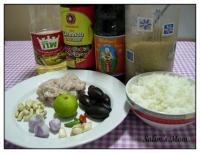
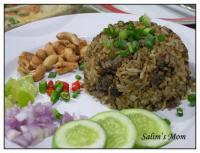

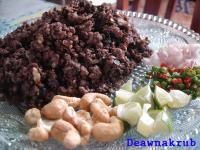
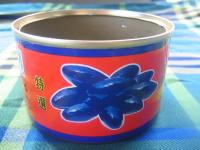
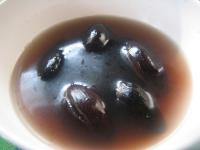
Light Not A Candle To The Sun..... หิ่งห้อยอย่าแข่งแสงจันทร์
in Thai Language
Posted
Hope I don't confuse anyone, but this expression reminded me of an old song about a match and a sunflower.
This match was in love with the sunflower, but alas, as we all know, sunflowers always turn to face the light from the sun, so the sunflower never even as much as glanced at the match. The match, although it knew the consequences, eventually decided to light itself up, in hopes of the sunflower turning towards it, even if only just once. As the match burned away, the sunflower slowly started to turn its face towards the flame... only to find a little pile of ashes which used to be the match.
ไม้ขีดไฟกับดอกทานตะวัน
วิยะดา โกมารกุล ณ นคร
เจ้าไม้ขีดไฟ ก้านน้อยเดียวดาย
แอบรักดอกทานตะวัน
แรกแย้มยามบาน อวดแสงตะวัน
ช่างงดงามเกินจะเอ่ย
ดอกเหลืองอำพัน ไม่หันมามอง
แม้เหลียวมายังไม่เคย
ไม้ขีดเจ้าเอ๋ย เลยได้แต่ฝัน ข้างเดียว
* ดอกไม้จะบานและหันไปตาม
แต่แสงจากดวงอาทิตย์
จุดตัวเองก็ยอมทันใด ให้ลุกเป็นไฟขึ้นมา
เพียงปรารถนา ให้มีลำแสงสีทอง
จุดตัวเองก็ยอมทันใด ให้ลุกเป็นไฟขึ้นมา
เพียงปรารถนา ดอกทานตะวันหันมอง สักครั้ง
เจ้าไม้ขีดไฟ ก้านน้อยเดียวดาย สาดแสงในใจไม่นาน
ดอกเหลืองอำพันจึงหันมามอง และพบเพียงกองเถ้าถ่าน
เจ้าไม้ขีดไฟ ก้านน้อยเดียวดาย เพราะรักจริงใจอย่างนั้น
เพียงแค่เธอหัน เพียงแค่เธอมองก็พอ
(*)
จุดตัวเองก็ยอมทันใด ให้ลุกเป็นไฟขึ้นมา
เพียงปรารถนา ให้มีลำแสงสีทอง
จุดตัวเองก็ยอมทันใด ให้ลุกเป็นไฟขึ้นมา
เพียงปรารถนา ดอกทานตะวันหันมอง สักครั้ง